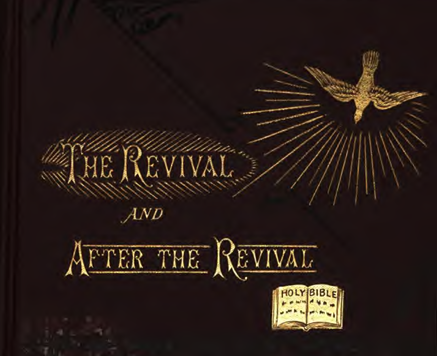There are dangers that lurk in the atmosphere where great revivals take place, and there are possible evils that follow such special seasons. “When the sons of God came to present themselves before the Lord, Satan also came among them.” After the baptism of the Lord, the opened heavens, the approving voice of the Father, and the abiding Spirit, there came fierce temptations. And in the midst of the excitement of a religious revival, it is important to watch out for fanaticism, the use of emotion instead of grace, and a religion based on ideas, feelings, professions, songs, and sudden decisions. Scenes of great religious excitement must lead to good things in places where the Spirit of the Lord really works and where God’s plans for people are carefully and persistently followed. As the saying goes, “not everything that glitters is gold,” and “they are not all Israel, which are of Israel.” There was a Judas among the apostles.
After the ore is found, it must be refined. After a recruit joins the army, he or she must go through drills, rules, the march, the battle, the hospital, and finally the final discharge. “Let whoever puts on his harness not boast as much as whoever takes it off.”
Peter was weak and undeveloped on the Mount of Transfiguration. John Mark was weak among Paul’s friends. One of the disciples was a mother who wanted to be important. At Corinth, the church members were loud and unruly. Sensitive and fault-finding widows and their friends in the early church; bigots who would call down fire from heaven on those who believe and worship differently than themselves; money-hungry, fame-seeking workers alongside those who work for God; and all seasons of universal activity bring such false or feeble souls to public attention. The force of life in revival times brings to the surface what a dead church would never see. The excesses of good and weak men crop out when the intensity of love and zeal overbalance judgment and taste. This activity inflames Satan’s bitter opposition. And with the ill-balanced that truly serve God, or the bad and self-centered attitudes in souls who think they are serving him, and the demons’ devices that hate his cause, it is a wonder that the “revival” is so faultless. “Better a dog than a dead lion.” A hospitable chamber with poor fare is preferable to a beautiful chamber of mages with paintings and jewels but no fare.
By J. H. VINCENT
Updated 2023 Nathan Zipfel

